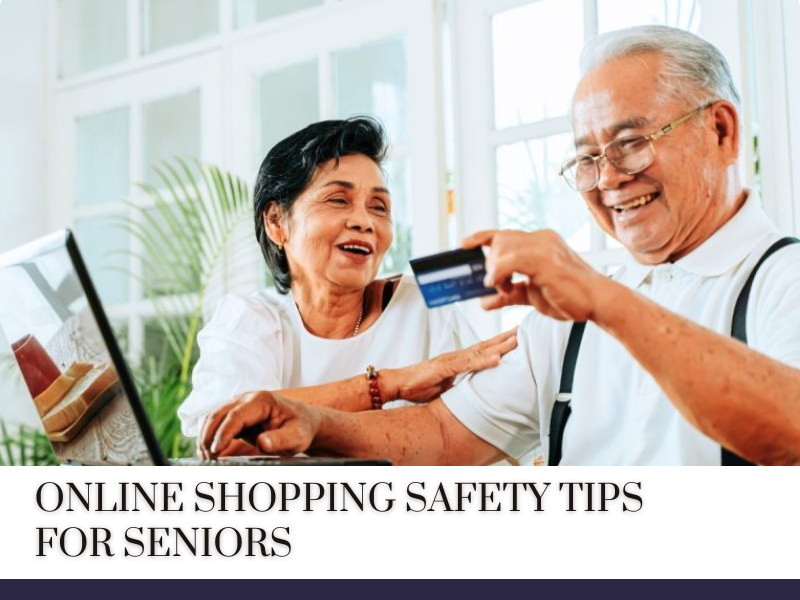Online shopping has become a popular way for many people to make purchases without leaving their homes, especially for seniors and retirees who may find it challenging to make it to the store. However, the convenience of online shopping can also come with risks that are important to be aware of. In this post, we’ll discuss how to navigate online shopping safely as a senior citizen, so you can enjoy the convenience without worrying about the potential dangers.
Shop on Secure Websites
Before making a purchase, it’s always important to ensure that the website you are using is secure. Look for the “https” in the web address and the padlock icon in the browser bar, indicating that the connection is encrypted. These secure sites play a crucial role in protecting your personal and financial information, providing you with the confidence to shop without worries. If you ever have doubts about a website’s security, take a few extra moments to do a quick search and see what other shoppers have said about their experiences. Your online safety should never be compromised!
Avoid Public Wi-Fi
Public Wi-Fi networks can be easily hacked, putting your personal information at risk of being stolen by cybercriminals. To ensure your online shopping security, it is advisable to use only private Wi-Fi networks that require a password. When you’re on the go, consider using your mobile data instead of connecting to public Wi-Fi hotspots, which may lack the necessary encryption protocols and leave your sensitive data vulnerable to unauthorized access.
Don’t share Personal Information
When creating an online account or making a purchase, it is important to prioritize your personal information security. Typically, the required details are your name, address, and payment information. However, exercise caution and avoid sharing additional sensitive information like your social security number or driver’s license number. If a retailer requests such information, it could be a red flag indicating their potential illegitimacy.
Use Strong Passwords
To create strong passwords that provide optimal online security, generate unique combinations for each account and make it a habit to change them regularly. Avoid using personal information, such as your birthdate or pet’s name, as it increases the vulnerability of your passwords. Instead, opt for a combination of upper and lowercase letters, numbers, and symbols to enhance complexity and make your passwords significantly more challenging to guess. By implementing these practices, you significantly enhance your protection against potential security breaches and unauthorized access.
Keep an Eye on Statements
It’s important to regularly check your credit card statements to ensure that there are no unauthorized charges. Review each transaction and verify its legitimacy. If you happen to come across any suspicious activity, don’t hesitate to reach out to your bank or credit card company right away. Prompt action can help protect your financial security and prevent any further inconvenience or potential loss.
Online shopping can be a convenient and safe way to make purchases, but it’s important to take steps to protect yourself. By shopping on secure websites, avoiding public Wi-Fi, not sharing too much personal information, using strong passwords, and keeping an eye on your credit card statements, you can safely navigate online shopping as a senior.




